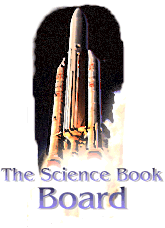 You can purchase this book clicking
here. You can purchase this book clicking
here.
If you wish to purchase further titles already reviewed
here, please return each time to SBB. Using the direct links available at our site is easier than
searching by title, author, or ISBN number.

EDITORIAL INFORMATION
The age-old question of how our home planet and
its satellite originated has in recent times undergone a minor revolution.
The emergence of the "giant impact theory" as the most succesful
model for the origin of the Moon has been difficult to reconcile with some
aspects of the Earth, and the development of an integrated model for the
origin of the Earth-Moon system has been difficult for his reason.
However, recent technical advances in experimental and isotopic work,
together with intensified interest in the modeling of planetary dynamics,
have produced a wealth of new results requering a rethinking of models for
the origin of the Earth and Moon.
Origin of the Earth and Moon is intended
to serve as a resource for those scientists working closely in this field,
while at the same time it provides enough balance and depth to offer an
introduction for students or technically minded general readers. Its
thirty chapters address isotopic and chemical constraints on accretion,
the dynamics of terrestrial planet formation, the impact-triggered
formation of the Earth-Moon system, differentiation of the Earth and Moon,
the origin of terrestrial volatiles, and conditions on the young Earth and
Moon. Covering such subjects as the history and origin of the Moon's
orbit, water on the Earth, and the implications of Earth-Moon interactions
for terrestrial climate and life, the book constitutes a state-of-the-art
overview of the most recent investigations in the field.
(Extracted from the press release).

GENERAL TABLE OF CONTENTS
- -Contents.
- -Collaborating Authors.
- -Preface.
- -Part I - Isotopic and Chemical Constraints on
Accretion.
- -Processes Determining the Volatile Abundances of
the Meteorites and Terrestrial Planets.
-Timescales of Planetesimal Formation and Differentiation Based on
Extinct and Extant Radioisotopes.
-Tungsten Isotopes, the Timing of Metal-Silicate Fractionation, and the
Origin of the Earth and Moon.
-The Xenon Age of the Earth.
- -Part II - Dynamics of Terrestrial Planet Formation.
- -On Planetesimal Formation: The Role of Collective
Particle Behaviour.
-Formation of Planetary Embryos.
-Origin and Evolution of Terrestrial Planet Rotation.
-Accretion of the Terrestrial Planets and the Earth-Moon System.
- -Part III - Impact-Triggered Formation of the
Earth/Moon System.
- -Higher-resolution Simulations of the Giants
Impacts.
-Lunar Accretion from an Impact-Generated Disk.
-The Phase Space Adventure of the Earth and Moon.
-Thermal Aspects of a Lunar Origin by Giant Impact.
-Geochemical Constraints on the Origin of the Earth and Moon.
-Outstanding Questions for the Giant Impact Hypothesis.
- -Part IV - Differentiation of the Earth and Moon.
- -Physical Processes of Core Formation.
-An Experimental Perspective on the Light Element in Earth's Core.
-Siderophile Elements in the Earth and Moon: Metal/Silicate Partitioning
and Implications for Core Formation.
-Significance of Highly Siderophile Elements and Osmium Isotopes in the
Lunar and Terrestrial Mantles.
-Fluid Dynamics of a Terrestrial Magma Ocean.
-Evolution of the Moon's Mantle and Crust as Reflected in Trace-Element
Microbeam Studies of Lunar Magmatism.
-Chronology and Isotopic Constraints on Lunar Evolution.
-Recent Refinements in Geophysical Constraints on Lunar Origin and
Evolution.
- -Part V - Origin of Terrestrial Volatiles.
- -Water in the Early Earth.
-Rare Gas Constraints on Early Earth History.
-Volatile Contributions from Icy Planetesimals.
- -Part VI - Conditions on the Young Earth and Moon.
- -Heavy Bombardment on the Earth at 3.85 Ga: The
Search for Petrographic and Geochemical Evidence.
-The Time-Dependent Intense Bombardment of the Primordial Earth/Moon
System.
-Earth-Moon Interactions: Implications for Terrestrial Climate and Life.
-The Early Earth vs. the Origin of Life.
- -Color Section.
- -Glossary.
- -Index.
|
![]()

![]()